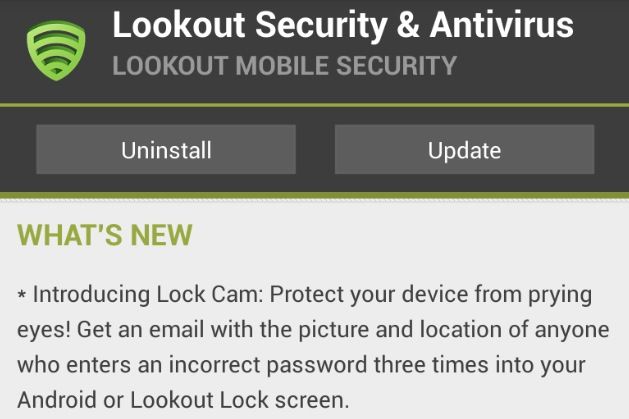Lookout’s New Lock Cam Feature Will Help You Identify Your Stolen Smartphone’s User
When it comes to protecting my Nexus 4 from malware and malicious apps, I’ve found Lookout for Android to be the best solution. Not only is it a great antivirus service, but it also offers features that’ll backup all of your data to the cloud, and locate your device in the event that it’s lost or stolen.
The app’s latest feature, Lock Cam, will help you identify your smartphone’s user by taking a picture of them when they enter an incorrect password too many times.
No one likes losing a smartphone that’s full of all their personal data, so when it happens, the quicker we can find it again, the better. Not only can Lookout help you locate your device, but it can also help you identify who’s using it.
Its new Lock Cam feature, baked into Lookout version 8.7, will send you an email with a picture of your smartphone’s user, and their location, when they enter your password incorrectly three times on the Android lock screen. Not only will this tell you where your smartphone is, but also who it’s with.
This may seem like a novelty feature; the location of your device is the most important thing, after all. But it can be incredibly useful. For instance, if Lookout tells you your smartphone is in a busy coffee shop, and all you have is that location data, you’ll have to ask everyone in their if they have your missing smartphone — and then you’ve got to hope that the person who does have it admits to it.
With Lock Cam, however, you’ll have a picture of their face, so they’ll be instantly recognizable.
If you don’t already have Lookout installed on your Android device, I highly recommend it — particularly if you’re not already using antivirus protection. Its security features are completely free, while the upgrade to Lookout Premium, which adds the Safe Browsing and Privacy Advisor features, is $2.99 per month.
Lookout predicts that between the beginning of 2012 and the end of 2013, more than 18 million Android users will have been subjected to malware. The most common threat is malicious applications that send premium rate text messages from your device on your behalf. While Android 4.2 may have its own malware scanner, research has proven you shouldn’t rely on it.
- SourceGoogle Play



